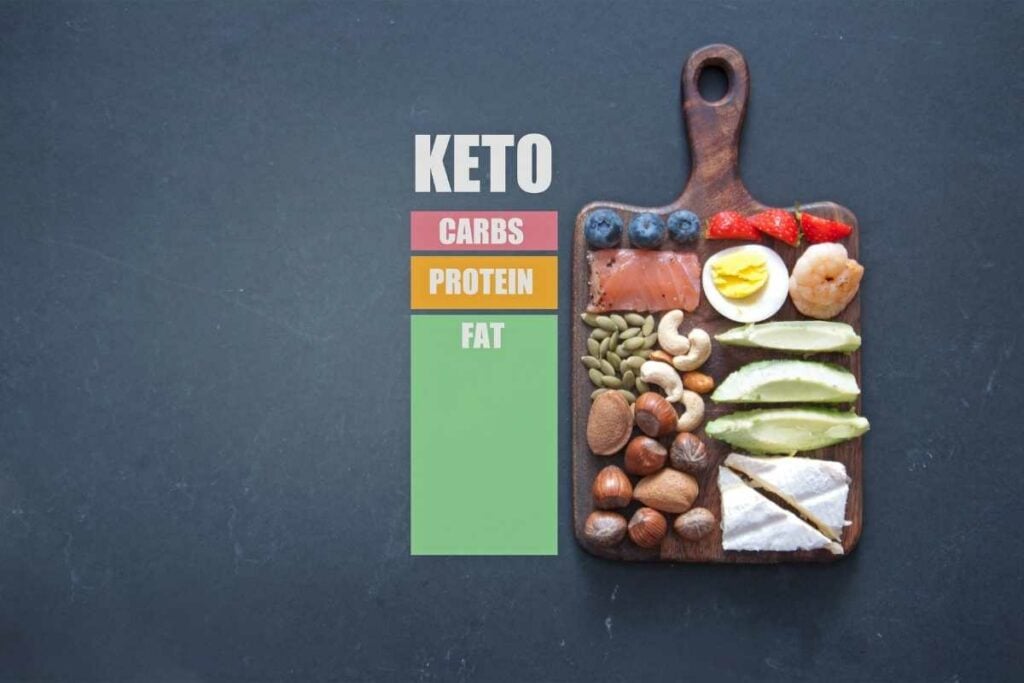Do Exogenous Ketones Work for Weight Loss?
The fundamental basis of the ketogenic diet is to get the body into a state of ketosis by eating foods high in fat and low in carbs. That means you’re burning fat instead of carbohydrates.
Exogenous ketones are a dietary supplement that reportedly supports weight loss and provides various health benefits.
But, do exogenous ketones work for weight loss? Are there any dangers? Are exogenous ketones a keto diet substitute? Find out the answers to these questions and more below.

This post may contain affiliate links, which helps keep this content free. Please read our disclosure for more info.
Exogenous Ketones – A Brief Understanding
While exogenous ketones don’t trigger weight loss on their own, they’re said to be an incredibly useful tool in making the keto diet more effective and easier to maintain.
These supplements have been reported as helping to ease the transition into ketosis, which is often accompanied by a few days of flu-like symptoms (also called the keto flu).
They also are proposed as a means to help you continue to sustain the state of ketosis in case of consuming an occasional snack that’s not keto-friendly.
Health blogs and articles claim exogenous ketones help with weight loss in a few other ways, as well. The supporting argument is that since the body’s natural ketones work to suppress the appetite, increase energy, and boost focus and cognitive function, exogenous ketones can do the same.
What Are Exogenous Ketones?
Unless you’re a keto diet expert, you’re probably wondering, “What are exogenous ketones?” To explain that, you also need to know what endogenous ketones are. Let’s dive in.
When blood glucose levels become low, which in this case is a result of carbohydrate restriction or fasting, the liver transforms stored fat into energy molecules called ketones – also referred to as endogenous ketones.
“Endo” because they are made within the body.

Burning ketones instead of glucose results in faster weight loss, increased physical endurance, improved mental clarity, and more consistent energy levels.
Simply put, endogenous ketones get produced by your body, and exogenous ketones come from outside the body.
Exogenous ketone supplements most often consist of a synthetic form of ketone called beta-hydroxybutyrate (BHB), which is the substance that your liver naturally creates.
Exogenous ketones are available in several different forms. Ketone salts are powdered electrolytes with artificial BHB added.
Keto salts usually get sold as drink mixes or pills. They’re generally easier to find and less expensive.
Ketone ester is a potent BHB concentrate. It works faster and more effectively than ketone salts, and the benefits also last longer. Ketone ester is available in liquid, powder, or pill form.
Perceived Benefits of Exogenous Ketones
Many people find the extremely restrictive keto diet challenging to maintain. The daily nutrient proportions are approximately 75% fat, 20% protein, and 5% carbohydrates.

It normally takes between two and four days to enter ketosis through restricting your carb intake. Exogenous ketones are believed to speed up this process by adding ketones to your bloodstream until your body gets more efficient at producing them on its own.
Consuming more than 50 grams of carbohydrates is enough to kick the body out of ketosis. By taking exogenous ketone supplements, it may be possible to artificially maintain the necessary ketone levels in your bloodstream.
By doing so, you’ll keep your body in ketosis after occasionally eating too many carbs.
Another reason people like exogenous ketones is because they want to avoid the keto flu.
People often report feeling unpleasant side effects like fatigue, bloating, nausea, diarrhea, headaches, and irritability during the transition into ketosis. Supplements like exogenous ketones have been reported to help reduce or even prevent the keto flu entirely.
Dangers of Exogenous Ketones
Different people experience varying reactions to taking supplements, and exogenous ketones are no exception.
The most frequent side effect of exogenous ketones is severe stomach upset.

Most users of exogenous ketones supplements also find the taste to be unpleasant. Of course, this is dependent on the brand and type you use.
Here’s where things get really tricky though – As with most other types of dietary supplements, exogenous ketones aren’t closely regulated, and their long-term effects haven’t been substantially studied.
Because of this, some of the potential dangers of exogenous ketones may include electrolyte imbalance, decreased blood sugar levels, and dehydration.
Medical disclaimer time: Always consult with your doctor before taking a new supplement or changing your diet, particularly if you’re on medication or have a health concern.
Health experts don’t recommend ketone salts containing sodium for people with high blood pressure.
Furthermore, health experts caution against taking these supplements in excess to maintain ketosis due to the large quantities of minerals that would get ingested.
Can Exogenous Ketones Replace a Ketogenic Diet? NO!
Unfortunately, exogenous ketones aren’t a magical diet supplement that allows you to eat whatever you want and still lose weight.
Some physicians and nutritionists may support the idea that they work in conjunction with a ketogenic diet to help minimize the flu-like symptoms associated with the body’s transition into ketosis and make it easier to maintain that metabolic state.
However, taking exogenous ketones doesn’t replace a ketogenic diet for long-term weight loss. And, even if you are using these supplements to prevent the keto flu, they are not intended to be used long term.
Since the supplements are an artificial source of ketones, the benefits only last a few hours.
Where Do I Stand on Exogenous Ketones?
Up to this point in this post, I’ve tried to be unbiased and give the debate a fair shake. However, to wrap this up let me share where I stand on exogenous ketones.
For the purpose of weight loss, I’m against exogenous ketones.
Here’s the thing, our bodies will burn dietary ketones before making their own out of stored fat.
What does this mean for losing weight?

If our bodies don’t need to make their own ketones from fat because we are drinking them, then consuming exogenous ketones actually defeats the purpose of trying to lose fat from going on the keto diet in my humble opinion.
On the other hand, if you’re not trying to lose weight, then exogenous ketones are great for brain function and enhanced performance during a workout.
The problem is, most people are taking exogenous ketones to substitute for being in ketosis in an effort to lose weight. You might see some results doing this, but in the long run you’re wasting your time and money using exogenous ketones for weight loss.
Bottom Line: Exogenous Ketones Are Not a Silver Bullet
Exogenous ketones may help people on the keto diet experience a smoother changeover into ketosis and have more success in sustaining this metabolic state. The appetite suppressant and energy-boosting qualities reinforce weight loss efforts.
However, they’re not an effective standalone weight loss solution. Without a naturally-produced supply of ketones, your body won’t be burning its own fat reserves.
The best way to lose weight on the keto diet, is to actually eat keto diet foods, and stay in ketosis.

Thank you, that was a great explanation of how ketones work and the difference in exogenous and naturally occurring from eating a proper keto diet.
You are so welcome!